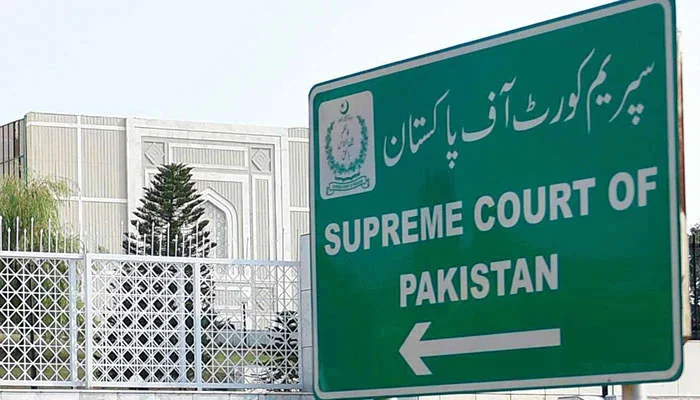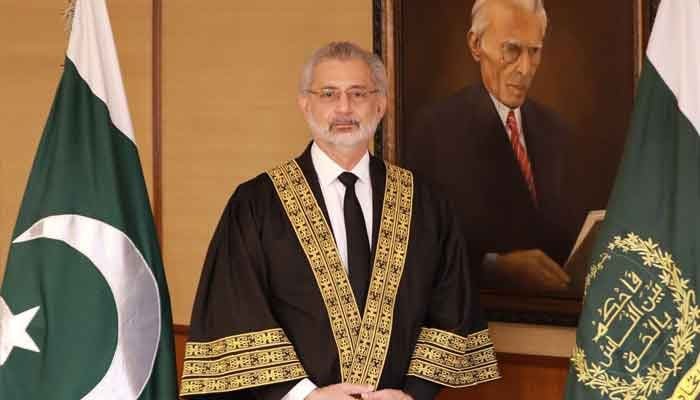Islamabad (News Agencies) – The Supreme Court of Pakistan has rejected the government’s objections against the bench hearing the audio leaks commission’s application. Chief Justice Umar Ata Bandial issued a detailed 32-page judgment, stating that the attack on the freedom of the judiciary by the federal government on May 15th was direct and aimed at disrupting the Supreme Court’s independence. On May 15th, government coalition parties protested outside the Supreme Court, making serious threats against the Chief Justice with the intention of removing him from the bench. Ministers issued statements against the judges, and instead of challenging the April 4th decision, the federal government concealed behind an appeal to the Election Commission. The courts were not intimidated by the refusal to accept judicial decisions, and a show of resilience was demonstrated.
The decision, authored by Chief Justice Pakistan, states that the objections raised against three judges have no legal significance. The bench’s request for objections was intended to harass rather than being in good faith. The court noted that the federal government’s non-cooperation had caused delays in the implementation of court decisions. There was no punitive action taken against the federal government for its non-cooperation.
Upon the release of audio leaks, the federal government and coalition parties outside the court made threats and put pressure on judicial decisions and actions. On April 4th, the Supreme Court had ordered elections in Punjab on May 14th. On May 15th, government coalition parties protested outside the Supreme Court, causing disturbances in the red zone area. The court has expressed strong reservations against protests in the red zone area.
The decision further explains that government machinery facilitated the entry of protesters into the red zone area. The federal government remained silent spectators to their baseless accusations. The intent was to pressure the courts and judges not to make any decisions in their favor.
The decision highlights that the fundamental right of the Pakistani people to freedom of expression under Article 19 of the Constitution must be exercised reasonably and correctly. The court also criticizes the federal government for interfering with judicial decisions through various tactics.
The judgment goes on to state that after these events, Parliament passed the Review of Judgments and Orders Act, effectively placing the decision outside the constitutional framework. The federal government filed petitions to separate judges from the cases. It is mandatory to implement the final decision of the court. Various applications are an attack on the judiciary, and such applications are dismissed with regret. It is regrettable that restrictions were imposed on protests in the red zone area. The federal government facilitated protesters’ entry into the red zone area.



